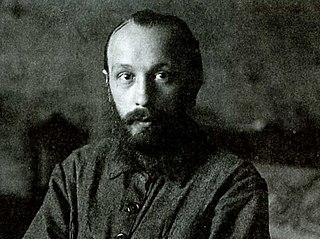A Quote by W. Somerset Maugham
One does not really feel much grief at other people's sorrows; one tries, and puts on a melancholy face, thinking oneself brutal for not caring more; but one cannot and it is better, for if one grieved too deeply at other people's tears, life would be unendurable; and every man has sufficient sorrows of his own without taking to heart his neighbour's.
Related Quotes
These nights are endless, and a man can sleep through them, or he can enjoy listening to stories, and you have no need to go to bed before it is time. Too much sleep is only a bore. And of the others, any one whose heart and spirit urge him can go outside and sleep, and then, when the dawn shows, breakfast first, then go out to tend the swine of our master. But we two, sitting here in the shelter, eating and drinking, shall entertain each other remembering and retelling our sad sorrows. For afterwards a man who has suffered much and wandered much has pleasure out of his sorrows.
Now let me be clear - I suffer no illusions about Saddam Hussein. He is a brutal man. A ruthless man. A man who butchers his own people to secure his own power. He has repeatedly defied UN resolutions, thwarted UN inspection teams, developed chemical and biological weapons, and coveted nuclear capacity. He's a bad guy. The world, and the Iraqi people, would be better off without him.
We rejoice in the joys of our friends as much as we do our own, and we are equally grieved at their sorrows. Wherefore the wise people will feel toward their friends as they do toward themselves, and whatever labor they would encounter with a view to their own pleasure, they will encounter also for the sake of their friends.
Good fortune almost always makes some change in a man's behavior - in his manner of speaking and acting. It is a great weakness to want to bedeck oneself in qualities which are not his own. If he esteemed virtue above all other things, neither the favors of fortune nor the advantages of position would change a man's face or heart.
It seems to me that the novel is very much alive as a form. Without any question, every epoch has its own forms, and the novel nowadays cannot resemble that of the nineteenth century. In this domain all experiments are justified, and it is better to write something new clumsily than to repeat the old brilliantly. In the nineteenth century, novels dealt with the fate of a person or of a family; this was linked to life in that period. In our time the destinies of people are interwoven. Whether man recognizes it or not, his fate is much more linked to that of many other people than it used to be.
It becomes 'one's own' only when the speaker populates it with his own intentions, his own accent, when he appropriates the word, adapting it to his own semantic and expressive intention. Prior to this moment of appropriation, the word does not exist in a neutral and impersonal language (it is not, after all, out of a dictionary that the speaker gets his words!), but rather it exists in other people's mouths, in other people's contexts, serving other people's intentions: it is from there that one must take the word, and make it one's own
Where no man thinks himself under any obligation to submit to another, and, instead of co-operating in one great scheme, every one hastens through by-paths to private profit, no great change can suddenly be made; nor is superior knowledge of much effect, where every man resolves to use his own eyes and his own judgment, and every one applauds his own dexterity and diligence, in proportion as he becomes rich sooner than his neighbour.
For us Christians, love of neighbour springs from love of God; and it is its most limpid expression. Here one tries to love one's neighbour, but also to allow oneself to be loved by one's neighbour. These two attitudes go together, one cannot be exercised without the other. Printed on the letterhead of the Missionaries of Charity are these words of Jesus: "as you did it to one of the least of these my brethren, you did it to me". Loving God in our brethren and loving our brethren in God.







































